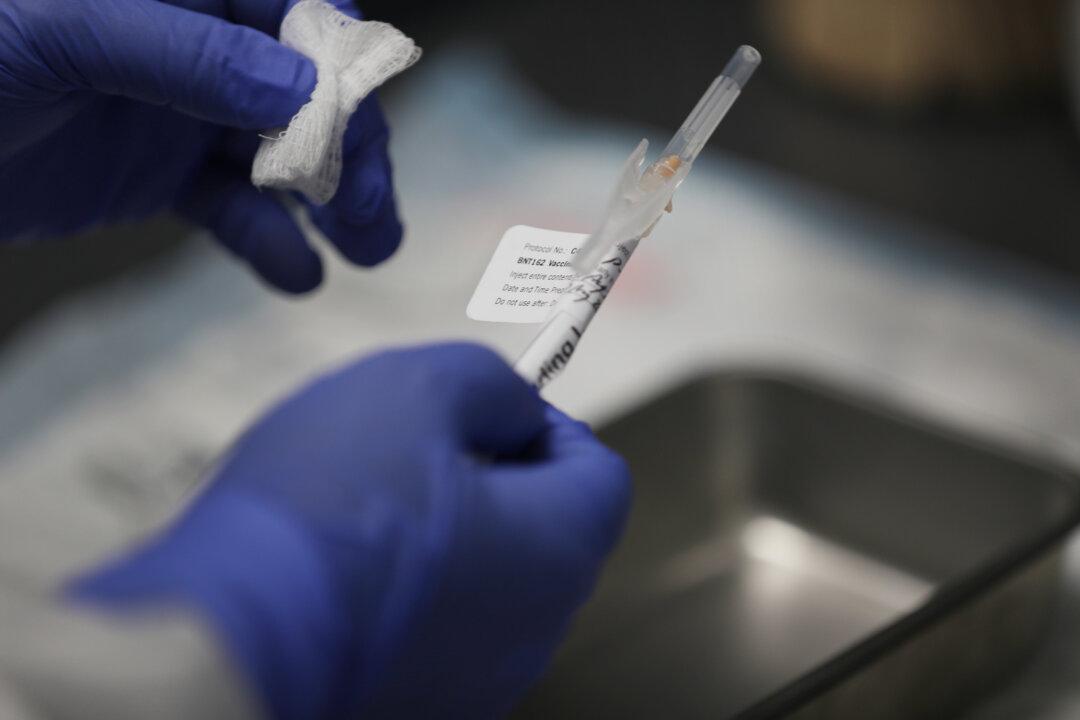The first CCP virus vaccine is due to complete its phase 3 trial by the end of October, but almost half of Americans say they will not get the vaccine.
In a recent Pew Research Center poll on whether Americans will get the vaccine, only 51 percent said they would, down 21 percent from May. The other 49 percent cited concerns about the vaccine’s potential side effects as to why they wouldn’t get it.






